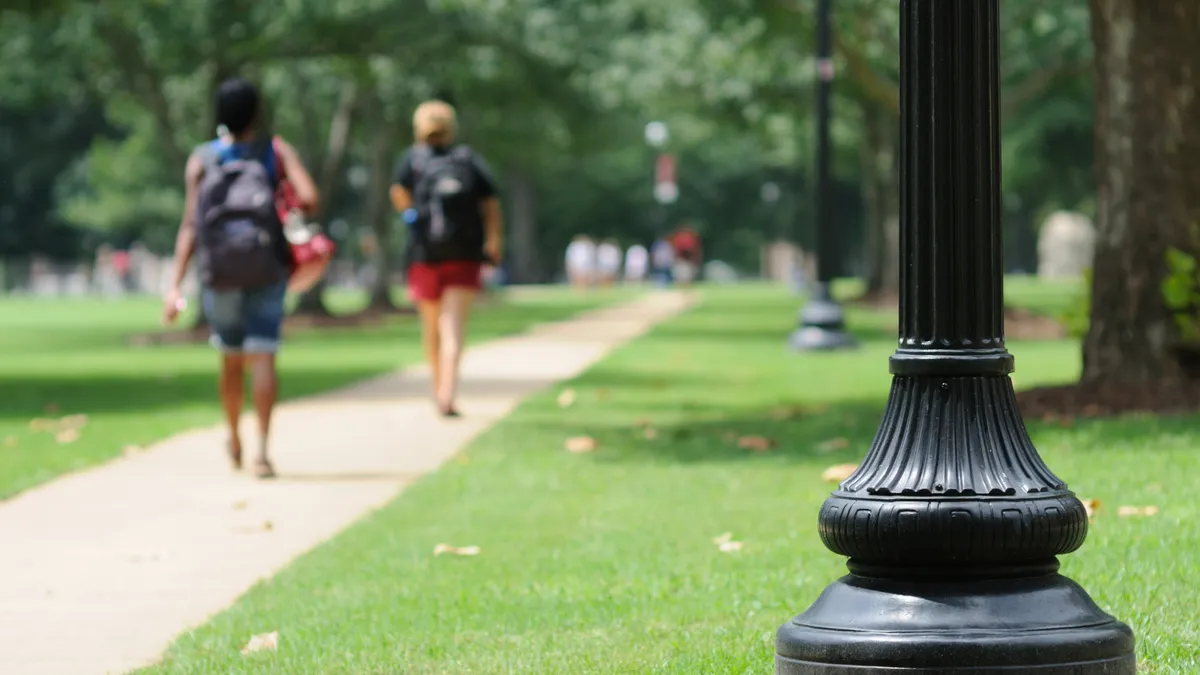Dive Brief:
-
The number of confirmed coronavirus cases among adults ages 18 to 22 skyrocketed by 55% from early August to early September, according to a new Centers for Disease Control and Prevention (CDC) report.
-
The increase coincided with colleges nationwide reopening their campuses for the fall term.
-
Though young people are at lower risk of severe illness or death from the virus than others, they can spread it, making mitigation strategies targeting this group critical, the CDC notes.
Dive Insight:
Research already suggested reopening campuses contributed to a spike in coronavirus cases nationally. One recent study, which has not yet been peer reviewed, attributed an average of more than 3,000 new daily cases nationwide to colleges that held face-to-face classes after the fall term began.
The CDC's report draws similar conclusions. During the period studied, the weekly incidence rate of the virus among young adults 18 to 22 increased by nearly 63%, before dipping slightly, the federal agency found.
A total 999,579 positive cases were reported to the CDC between Aug. 2 and Sept. 5, nearly 16% of which were in that age range.
The rise in cases was particularly acute among White young adults, for whom the weekly incidence rate jumped by almost 150% in a month. The CDC attributed the increase to multiple factors. But it noted that because nearly half of people in that age group are enrolled in college, and half of those attendees are White, "it is likely that some of this increase is linked to resumption of in-person attendance."
The agency also said the rise in case counts couldn't be solely attributed to increased testing.
Young adults are also less likely to adhere to prevention measures, the CDC states. Behavioral experts advise colleges to set clear expectations about safety requirements and how students can abide by them.
As colleges map out the spring semester, they should consider their capacity to test for the virus, said Madeline Buitendorp, a student at Davidson College and communications director for its College Crisis Initiative (C2i), which tracks institutional responses to the pandemic.
As the CDC's findings reflect, schools that reopened undoubtedly contributed to an uptick, Buitendorp said, adding that it's "concerning" some schools didn't test vigorously for the virus. Colleges' testing regimens have varied, with some screening students regularly regardless of whether they have symptoms, while others only testing students when they arrived on campus.
The CDC also found case counts in the western U.S. declined during August. As such, institutions should pay attention to their peers in that region as they plan for spring, said Chloe deBeus, C2i's chief technology officer.
"Those will be the ones to watch," she said.














